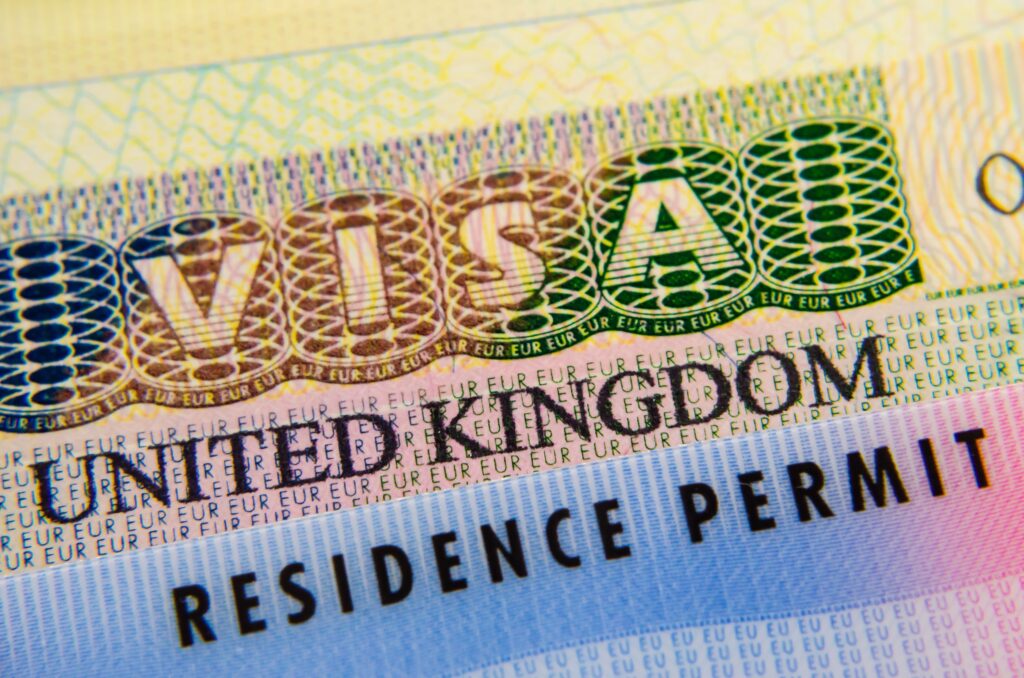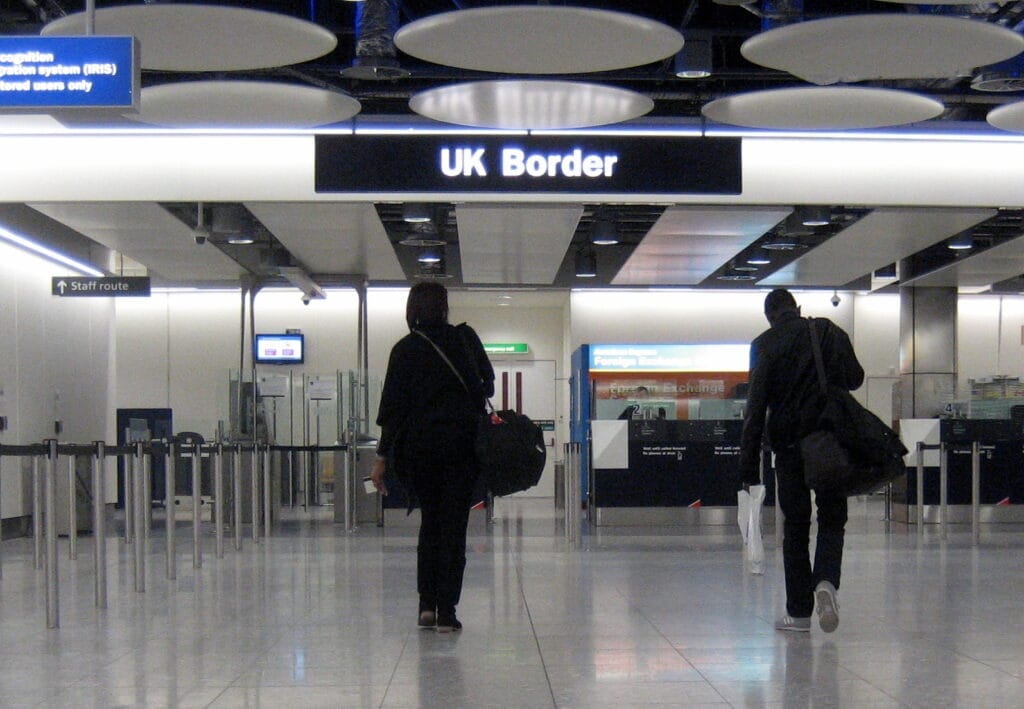Health & Care
Worker VISA
Fast-Track UK
work visa route
for healthcare professionals
The Health and Care Worker visa allows health sector professionals to come to or stay in the UK to do an eligible job with an approved employer such as the NHS, an NHS supplier or an adult social care provider. This visa offers a fast-track, reduced-fee route to the UK for healthcare professionals.
Eligibility
To qualify for a Health and Care Worker visa, you must:
- Be doing a job that’s on the list of eligible occupations.
- Be working for a UK health and care sector employer that’s been approved by the Home Office.
- Be paid a minimum salary. How much depends on your occupation.
- Be able to speak, read, write and understand English. You’ll usually need to prove your knowledge of English when you apply.
Your job
You must have a job offer from an approved UK employer before you can apply for a Health and Care Worker visa. The job you have been offered in the UK must be on the list of eligible occupations.
If you’re extending, updating or switching to a Health and Care Worker visa, your job can also be in one of the following ‘medium skilled’ occupation codes:
- 6135: care workers and home carers
- 6136: senior care workers
If you’re switching from a different visa, you must have been working legally in your job for your sponsor for at least 3 months.
If you’re extending or updating your visa and you got your certificate of sponsorship before 22 July 2025, your job can also be in one of the following ‘medium skilled’ occupation codes:
- 1231: health care practice managers
- 3213: medical and dental technicians
- 3219: health associate professionals not elsewhere classified
- 6131: nursing auxiliaries and assistants
- 6132: ambulance staff (excluding paramedics)
- 6133: dental nurses
Each occupation on the list has a corresponding 4-digit code called a Standard Occupational Classification (SOC) code. If you do not know your code, you can search for your job in the CASCOT occupation coding tool.
Your job will also need to meet the minimum salary requirement. How much you’ll need to be paid depends on the type of work you’ll be doing.
You’ll usually need to be paid at least £25,000. If the ‘going rate’ for your job is higher than £25,000 you’ll usually need to be paid at least the going rate.
Costs
When you apply for a Health and Care Worker visa, you will need to have enough money to:
- Pay the visa application fee – It costs £304 per person for up to 3 years, or £590 per person for more than 3 years.
- Support yourself in the UK – You will usually need to show that you have at least £1,270 in your bank account (unless you’re exempt). You will need to have had the money available for at least 28 days in a row. Your employer may be able to cover your costs during your first month in the UK.
NOTE:

The visa application fee must also be paid for any accompanying dependants. Health and Care Workers and their dependants are exempt from paying the Immigration Health Surcharge (IHS).
The amount of money you need to support yourself in the UK may vary if you are bringing dependants with you.
If you are employed as a care worker or senior care worker, your partner and children can only apply as your dependants if you were employed in the UK as a care worker or senior care worker and on a Health and Care Worker visa or Skilled Worker visa before 11 March 2024 and continuing in that capacity.
How to apply
You must apply online for a Health and Care Worker visa.
As part of your application, you will need to prove your identity and provide your supporting documents. To do this, you will need to do one of the following:
- Attend an appointment at a Visa Application Centre (VAC) if you’re outside the UK.
- Attend an appointment at a UK Visa and Citizenship Application Services (UKVCAS) service point if you’re inside the UK.
- Use the ‘UK Immigration: ID Check’ app to scan your identity document, if you are eligible.
Processing times
You can apply for a Health and Care Worker visa up to 3 months before the day you are due to start work in the UK (this date is listed on your CoS).
Once you’ve applied online, proved your identity and provided your documents, you’ll usually get a decision on your visa within 3 weeks.
You may be able to pay to get a faster decision using the Home Office priority services.
How long you can stay
A Health and Care Worker visa can last for up to 5 years before you need to extend it. You can apply to extend this visa as many times as you like, if you still meet the eligibility requirements. You will need to apply to update your visa when it expires, or if you change jobs or employers.
After 5 years’ continuous residency, you may be able to apply for settlement (also known as Indefinite Leave to Remain). This gives you the right to live, work and study in the UK for as long as you like, and apply for benefits if you are eligible.
Permitted activites
With a Health and Care Worker visa, you can:
- Work in your sponsored job
- Take on additional work, in limited circumstances
- Do voluntary work
- Study
- Bring your partner and children with you as your ‘dependants’, if you and your family members are eligible
- Travel abroad and return to the UK
You cannot:
- Apply for most benefits (public funds), or the State Pension.
- Change jobs or employer, unless you apply to update your visa.
How we can help
Smith Stone Walters can offer expert advice and assistance with your Health and Care Worker visa application. We have worked with employers and individuals to successfully secure Health and Care Worker visas to work in a wide range of job roles and healthcare settings. To find out more about our service offering, please contact us today.
note:
This page is intended for informational purposes only. Immigration rules are subject to change and may vary based on your individual circumstances. For up-to-date advice and guidance, please contact Smith Stone Walters.
Frequently asked questions
– Your Certificate of Sponsorship reference number – your employer will give you this
– Proof of your knowledge of English
– A valid passport or other document that shows your identity and nationality
– Your job title and annual salary
– Your job’s occupation code
The name of your employer and their sponsor licence number – this will be on your certificate of sponsorship.
Depending on your circumstances, you might be asked to provide other documents, such as evidence of personal savings, proof of your relationship with any accompanying dependants, your TB test results if you’re from a listed country, a criminal record certificate and any relevant qualification certificates.
Smith Stone Walters can help you identify which documents are required for your Health and Care Worker visa application.
– A dependant partner or child is any of the following:
your husband, wife, civil partner or unmarried partner.
your child under 18 – including if they were born in the UK during your stay.
– Your child over 18 if they’re currently in the UK as your dependant.
-Separate applications must be made for each accompanying dependant. If their application is successful, your family members will be granted a visa which expires on the same date as your Health and Care Worker visa.
If you are employed as a care worker or senior care worker, your partner and children can only apply as your dependants if you were employed in the UK as a care worker or senior care worker and on a Health and Care Worker visa or Skilled Worker visa before 11 March 2024 and continuing in that capacity.
You must prove you can read, write, speak and understand English to at least level B1 on the Common European Framework of Reference for Languages (CEFR) scale.
You can prove your knowledge of English by:
– Passing a Secure English Language Test (SELT) from an approved provider.
– Having a GCSE, A level, Scottish National Qualification level 4 or 5, Scottish Higher or Advanced Higher in English, gained through study at a UK school that you began when you were under 18.
– Having a degree-level academic qualification that was taught in English – if you studied abroad, you’ll need to apply through Ecctis (formerly UK NARIC) for confirmation that your qualification is equivalent to a UK bachelor’s degree, master’s degree or PhD.
You do not need to prove your knowledge of English if you’re a national of certain exempt countries, or if you are a doctor, dentist, nurse, midwife or vet and you have already passed an English language assessment that is accepted by the relevant regulated professional body.
– You want to change jobs and your new job will be with a different employer.
– Your job changes to a different occupation code, and you’re not in a graduate training programme
– You leave a job that’s on the shortage occupation list for a job that is not on the list.
Your new job must meet the eligibility requirements and you’ll need a new certificate of sponsorship to prove this.
If you’ll be doing a different job for your current employer, you only need to apply to update your visa if your new job is in a different occupation code.
You can do additional paid work as long as you are still doing the job you’re being sponsored for. You can also do unpaid voluntary work.
You may need to apply to update your visa to do additional paid work. This will depend on the type of work you’re doing and the hours you’re going to work.
You can work up to 20 hours a week in another job or for your own business, as long as you’re still doing the job you’re being sponsored for. Your work must be either in the same occupation code and at the same level as the job you’re being sponsored for, or in a shortage occupation. You can also do unpaid voluntary work.
If you will be doing more than 20 hours a week in another job or working in a different occupation code, you’ll need to apply to update your visa so that you’re being sponsored to do both jobs.
If you work overtime in the job you’re being sponsored for, you do not need to update your visa. There is no limit to how many hours of overtime you can do.
Your employer (otherwise known as your sponsor) will provide you with the certificate which you can then use to apply for your visa.
Alternatively, Smith Stone Walters is on hand to answer any questions you may have. Our immigration experts can assess your eligibility for a Health and Care Worker visa and guide you through the entire application process. To find out how we can help, please contact us today.





